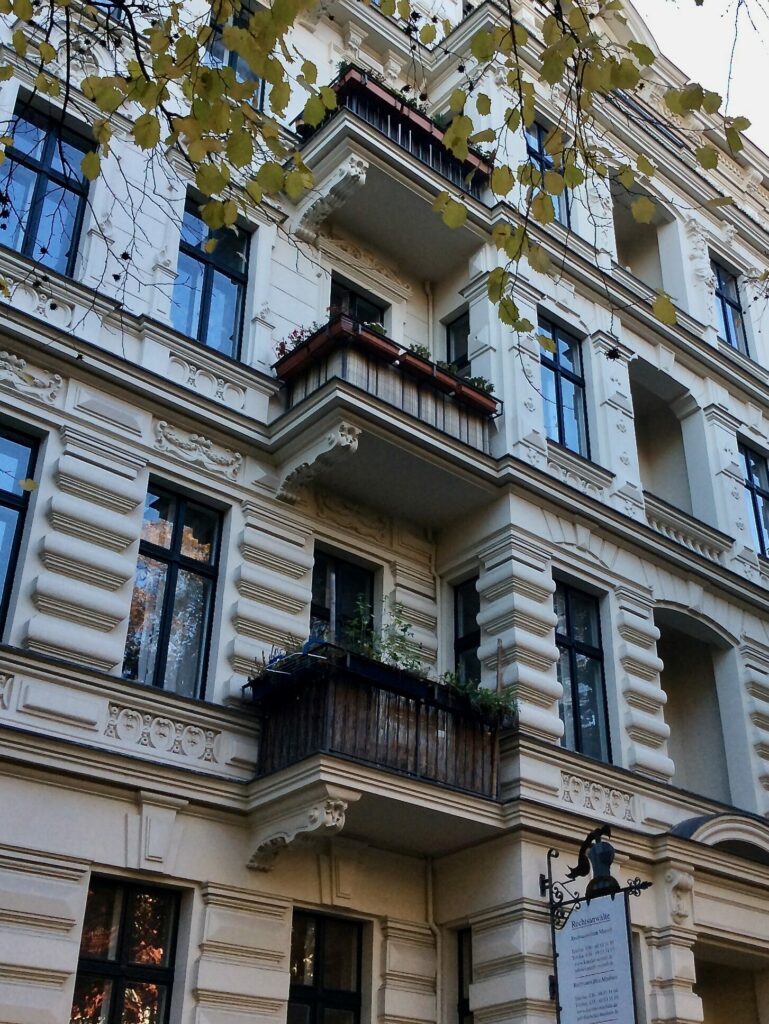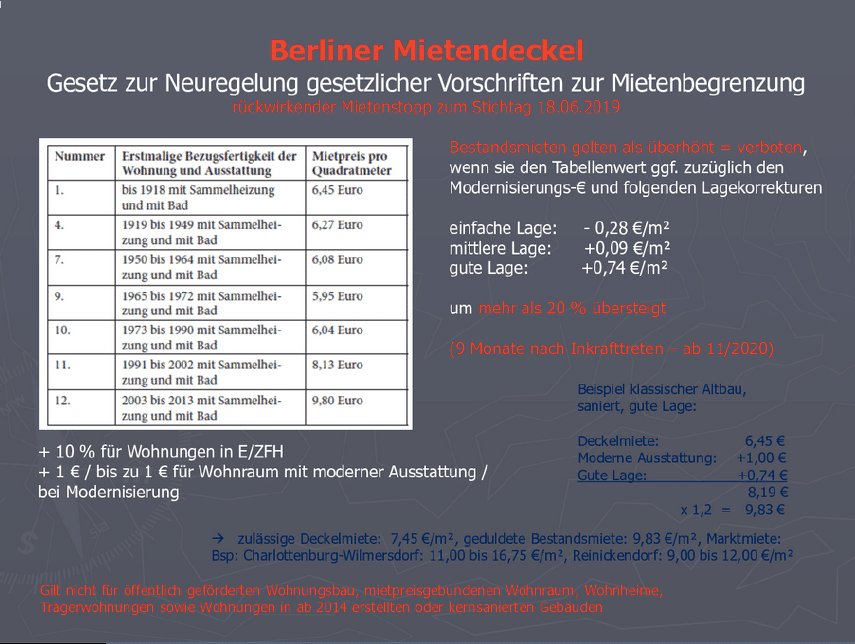Revocation of the rent capping (“Mietendeckel”) in Berlin by the Constitutional Court
- What did the rent capping (“Mietendeckel”) mean for landlords and tenants?
- What will happen after the rent capping (“Mietendeckel”) is lifted?
- Does the rent capping (“Mietendeckel”) still apply?

The controversial law to reduce rents in the city of Berlin, MietenWOG Bln, or colloquially known as the rent capping (“Mietendeckel”), which has been in force since 23 February 2020, was rejected by the Constitutional Court on 15 April 2021.
The reason: it was not the county of Berlin but the federal government of Germany that was responsible for regulating rents.
What did the rent capping (“Mietendeckel”) mean for landlords and tenants?
The law MietenWOG Bln, rent capping (“Mietendeckel”), was created to stop the rent increase in the city of Berlin. The rents of existing buildings were “frozen” by a rent freeze, planned for 5 years.
A rent table was used as a basis for the law; depending on the location and the degree of modernisation of the property, a rent from approx. 5.95€ to approx. 9.80€ per square metre was envisaged.
However, if the rent was more than 20% above the upper rent limit according to the rent table, it had to be reduced accordingly. For new rental contracts the rent table should also be followed. New buildings built in 2014 or later and social housing were exempt from the law.
What will happen after the rent capping (“Mietendeckel”) is abolished?
Tenants in Berlin are threatened with retrospective payments. Landlords will be able to retroactively claim the difference between the lowered rent and the agreed rent according to the tenancy agreement. In some cases, this will lead to larger additional payments for the tenants.

The Berlin Senate has promised to support tenants who are unable to pay. Affected households with an income of up to 280% of the federal income limit are eligible. Rent repayments are to be subsidised and can be applied for at the Senate Department for Urban Development and Housing.
The identity card/registration certificate, the tenancy agreement, proof of rent payments for the last 3 months and the letter/demand from the landlord must be submitted.
The Rent Law Amendment Act (rent control / “Mietpreisbremse”) still applies

We remember, there was something else… the “Mietpreisbremse”, the Rent Law Amendment Act. It came into force on 1 June 2015, still exists and also protects tenants from excessive rents.
The “Mietpreisbremse” is based on the local comparative rents. In the case of a new rental, the rent may not be more than 10% above the local comparable rent. The local comparable rent can be found in the Berlin rent index.
The “Mietpreisbremse” does not apply to first-time rental in new buildings or after comprehensive refurbishment. Existing rents are also protected, i.e. existing higher rents (10% and more above the local comparable rent) do not have to be lowered again.
However, they cannot be increased further either.

